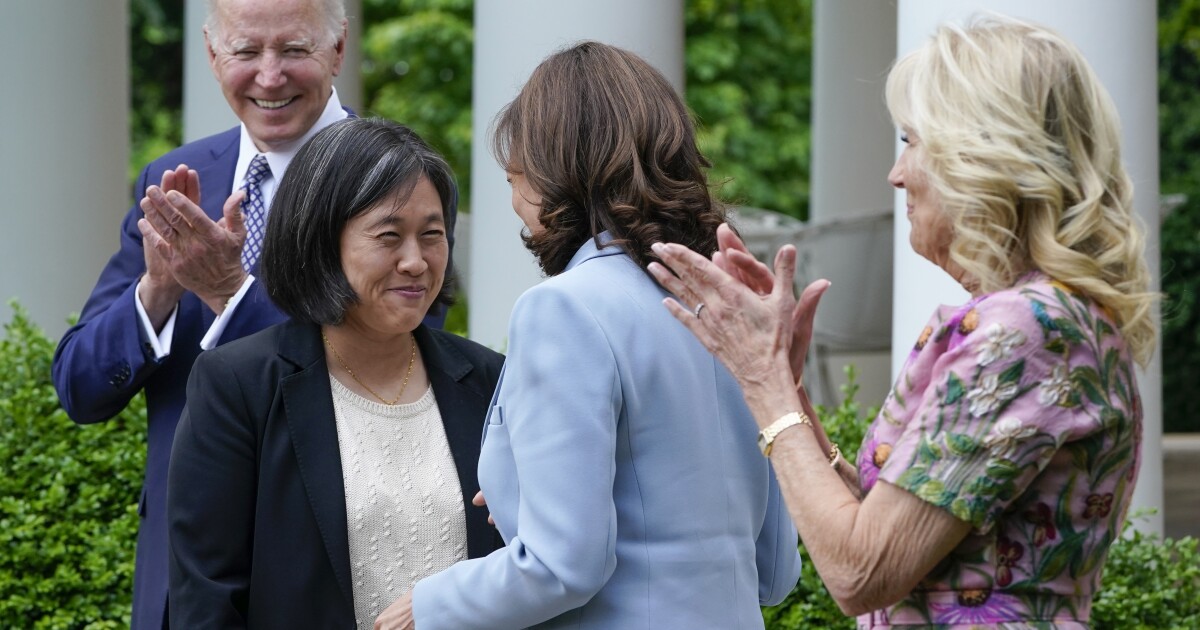

President Joe Biden and Democrats are trying to make inroads with Asian American and Pacific Islander voters before the 2022 midterm elections after assumptions that former President Donald Trump’s rhetoric would deliver the demographic to the party.
Biden’s outreach comes amid AAPI Heritage Month and incorporates a White House visit next week from Grammy-nominated Korean-pop band BTS to discuss, in part, anti-Asian hate crimes and discrimination post-Trump.
BIDEN, LIKE OBAMA, PROMISES UNITY BUT DOESN’T DELIVER
Republicans gained 7 percentage points with AAPI voters in 2020, according to the cycle’s exit polls. But the Democratic National Committee remains adamant the bloc is “central” to the party’s attempts to protect and expand its congressional majorities despite being outspent by its Republican counterpart.
“Asian Americans, the fastest-growing coalition group, comprise more than 23 million citizens and more than 50 ethnic groups,” a DNC spokeswoman told the Washington Examiner.
The DNC has spent more than six figures since last spring on print and digital advertisements in 10 languages, including five figures in May for AAPI Heritage Month digital ads, the spokeswoman said. Supplementing its Lunar New Year celebrations, the DNC is also planning a heritage month event with second gentleman Doug Emhoff and half-Thai Chinese Sen. Tammy Duckworth (D-IL), promoted by AAPI-focused media company Next Shark.
And before the 2022 midterm elections, the DNC is paying for AAPI directors to support committee-coordinated campaigns in Nevada and Pennsylvania, the spokeswoman added. That complements DNC collaborations with state party AAPI directors in Georgia, Nevada, Pennsylvania, and Wisconsin. The DNC is additionally helping state parties and coordinated campaigns translate materials and literature into, for example, Chinese, Hindi, Hmong, Korean, Punjabi, Tagalog, Urdu, and Vietnamese.
At the same time, the Republican National Committee boasts an AAPI “multimillion-dollar commitment” that encompasses community centers, the first of which opened last summer. Now, the RNC has bases in Westminster, California; Berkeley Lake, Georgia; Las Vegas; and Coppell, Texas, according to the committee’s AAPI spokesman, Nainoa Johsens. There, staff members train volunteers to register and turn out voters as well as host potluck dinners, dance classes, and even Korean-language Tax Day preparation seminars.
The RNC, too, has doled out five figures for heritage month ads, though they are spread across digital, print, and radio, particularly targeting Chinese, Filipino, Indian, Korean, and Vietnamese Americans through 10 national and local newspapers. Some ads are running in Arizona, Georgia, Nevada, and Washington, while others are aimed at competitive House races in California.
“Republicans have been investing and meeting [AAPI] voters on the ground in their communities for months,” Johsens said. “Democrats have just started because it’s election season. I think that the numbers in November will reflect the differences in our investments and voter trust in our policies.”
Biden has touted his administration’s AAPI diversity, one example being Vice President Kamala Harris, whose mother was Indian, and U.S. Trade Representative Katherine Tai, whose parents immigrated from Taiwan. Simultaneously, he has come under pressure from Democratic lawmakers, such as Duckworth and Japan-born Hawaii Sen. Mazie Hirono, to add more AAPI aides to his ranks after his original Office of Management and Budget director nominee Neera Tanden was rejected.
Biden’s White House AAPI Heritage Month ceremony was held days after separate shootings at an Orange County, California, Taiwanese church and a Korean-owned Dallas hair salon — and a year after six Asian women, most of whom had Korean backgrounds, were killed by a gunman at Atlanta spas and massage parlors. In between mentions of improved AAPI unemployment data and his recent Asia trip, Biden contended the country needs to confront “who’s responsible” for encouraging “the hate.”
“You have folks on television stations talking about the ‘[Great Replacement] theory,’ scaring the living hell out of people who don’t have a whole lot of emotional stability, taking advantage of — on the internet and other means by talking about how we’re going to be ‘overtaken,'” he said.
Biden went on to reference the bipartisan COVID-19 Hate Crimes Act, introduced after advocates raised concerns that Trump’s “China virus” and “Kung flu” talk had coincided with a spike in attacks. Before Biden spoke, Harris alluded to Trump, saying, “Racism is real in America.”
CLICK HERE TO READ MORE FROM THE WASHINGTON EXAMINER
“I said last year and I sadly say again today: We have had people in positions of incredible power in our country scapegoating, people with the biggest pulpits spreading this kind of hate,” she said.







